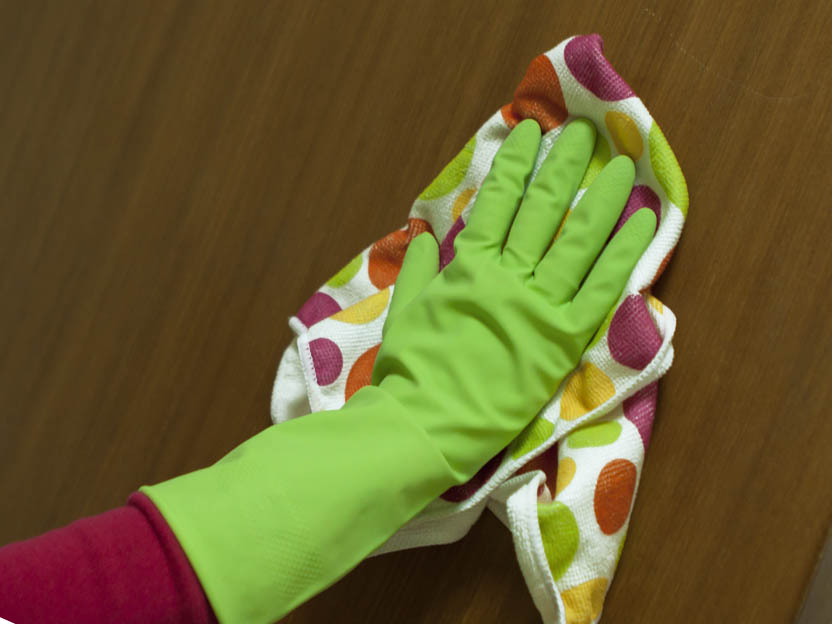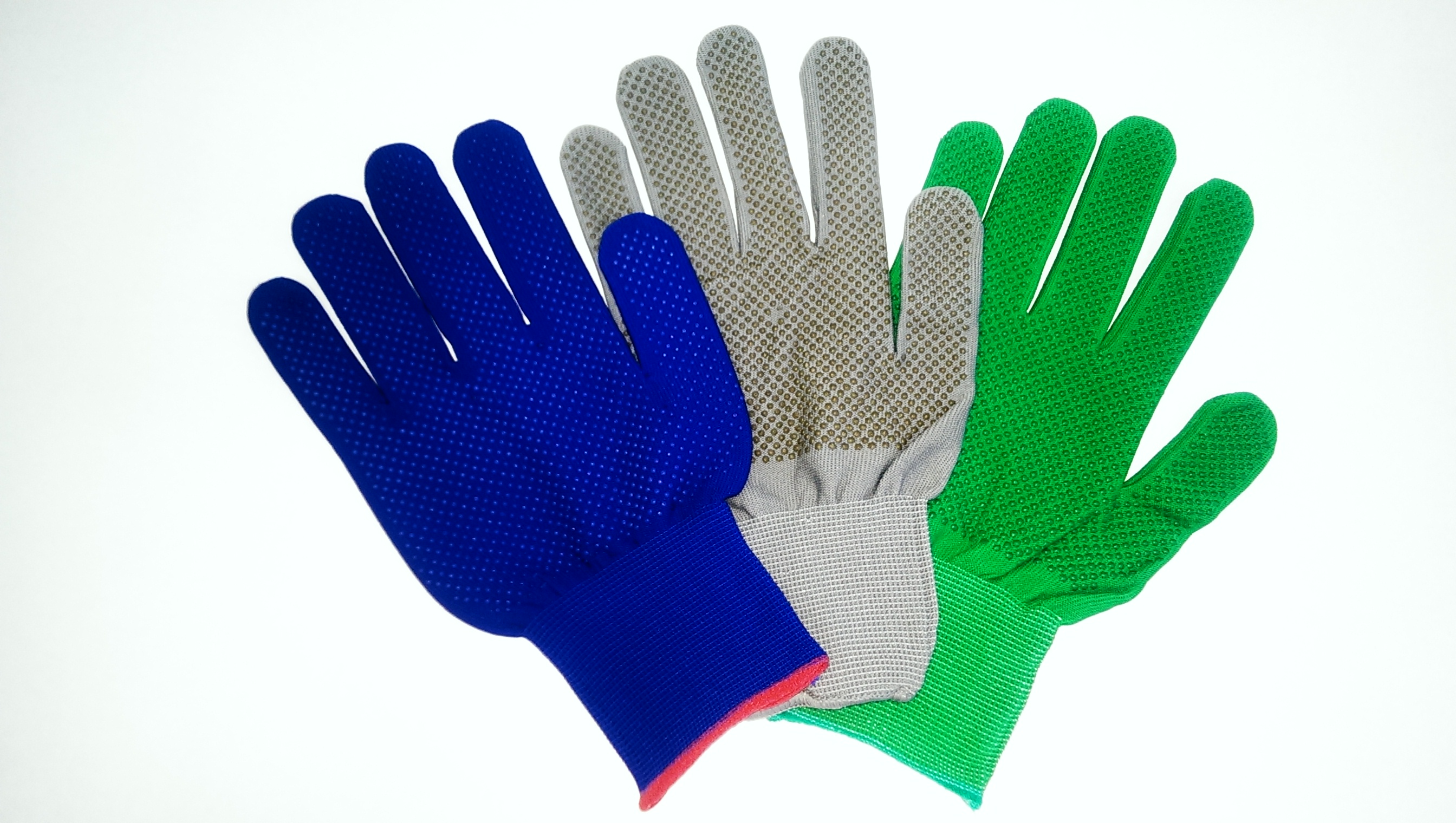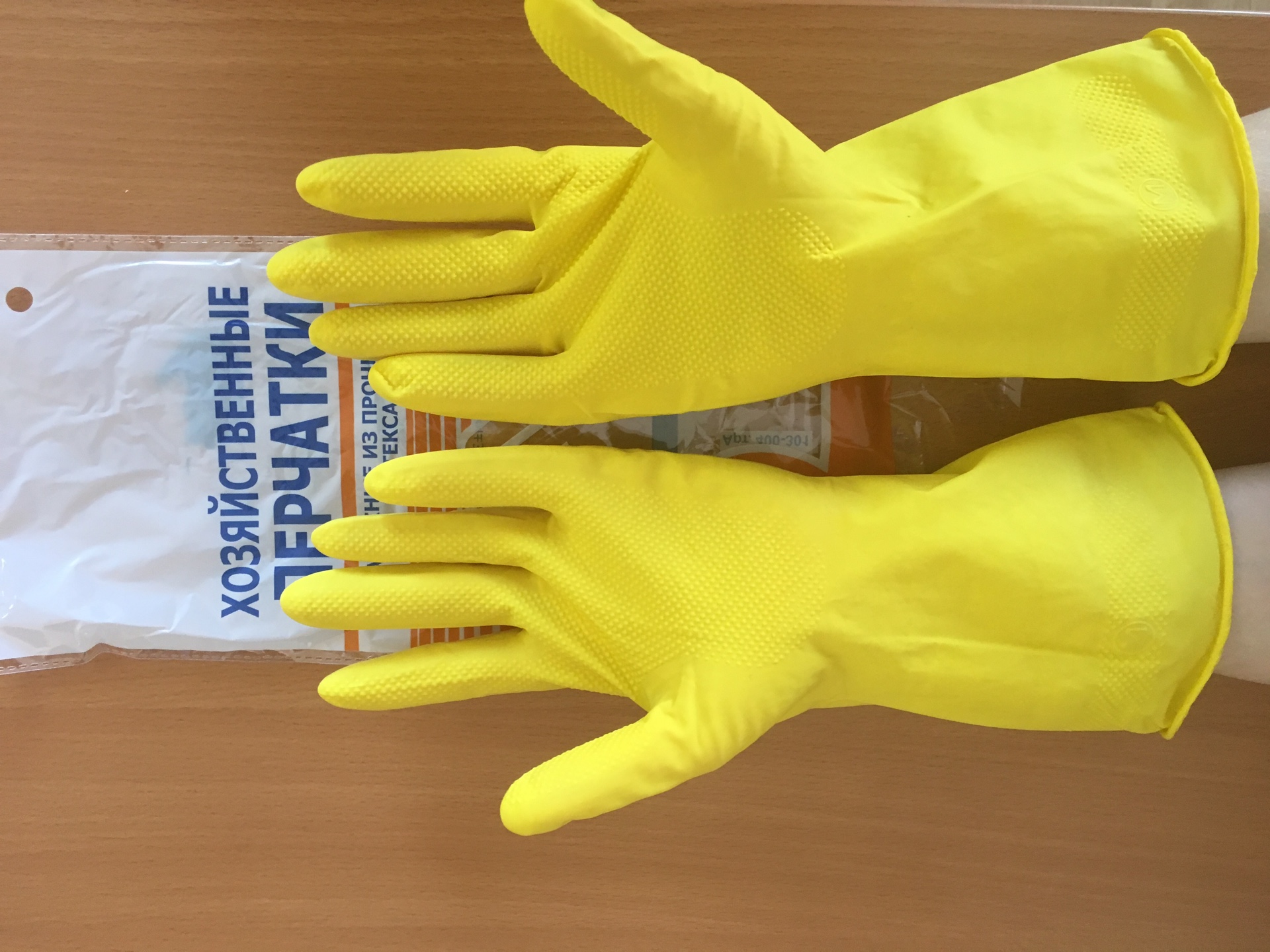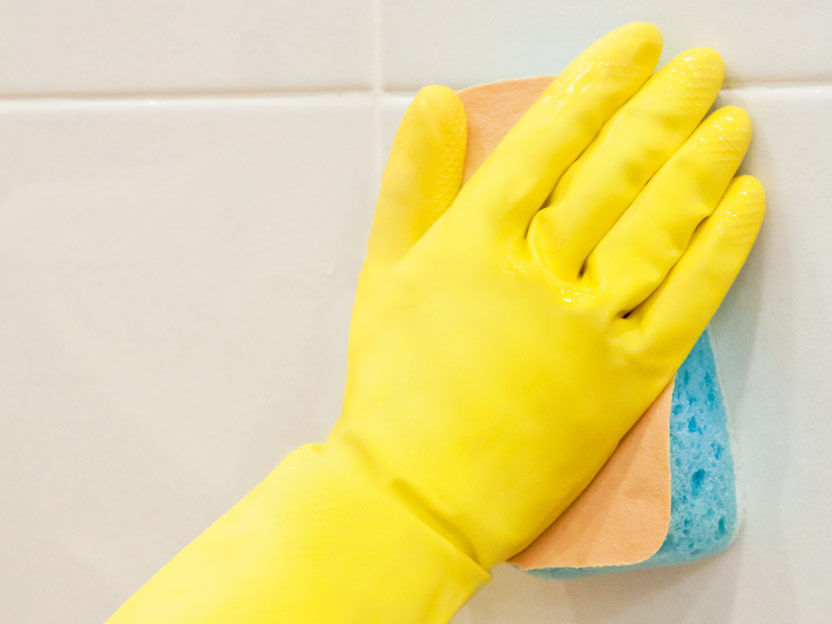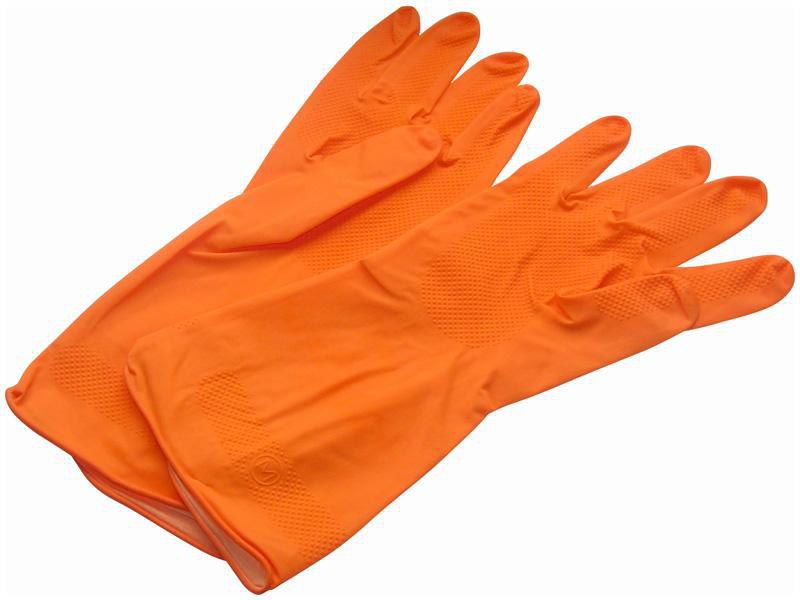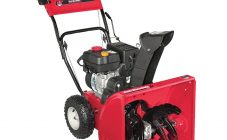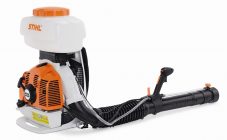Content:
Household gloves - a product designed to protect the skin of the hands and nails from the negative effects of chemicals, various contaminants and mechanical damage during household work. There is an optimal pair of household gloves for every kind of work.
For cleaning and other purposes
Personal protective equipment for hands has many technical characteristics.
By service life:
- disposable (to be disposed of immediately after the end of work);
- reusable (operational period 1-12 months).
Recently, housewives like to use mittens in household use, which are intended for medical institutions. This type is uniquely one-off. Almost all types of household gloves are reusable.
By material of manufacture:
- made of natural rubber (latex);
- made of artificial rubber (nitrile, vinyl);
- knitted (cotton with PVC coating and without).
By the degree of thermal protection:
- lightweight;
- insulated.
By the degree of water protection:
- soakable (knitted without continuous PVC coating);
- waterproof (all types of rubber gloves).
What are they made of
Gloves are made from various materials.
Household rubber gloves: technical characteristics
Gloves made of natural rubber - latex. Indispensable when you need increased sensitivity of the fingers when performing work, as well as protection against contamination of the skin of the hands and exposure to the aggressive environment of household chemicals and constant contact with water.
Advantages:
- thin and light, do not weigh down the hand, while maintaining the sensitivity of the fingers;
- resistant to tearing under tension, stretch well;
- in case of punctures or cuts, the place of damage does not creep, making it possible to complete the work with minimal damage to the hands;
- perfectly protect the skin of hands and nails from pollution.
Main disadvantages:
- not resistant to cuts / punctures, and therefore their service life can be reduced to one day;
- poorly resistant to highly concentrated chemicals;
- may be uncomfortable to use if the size is wrong: pinch the vessels, contribute to the occurrence of edema;
They are used for wet cleaning at home, washing dishes (fruits and vegetables), can protect hands when carrying out paintwork, are useful when working with glass or ceramics that require high tactile sensitivity.
Artificial rubber - nitrile, vinyl. Due to the addition of artificial fibers to the composition, such gloves acquire greater wear resistance, increased resistance to mechanical damage.
Advantages of nitrile and vinyl gloves:
- resistant to aggressive chemicals;
- greater resistance to punctures / cuts in comparison with latex;
- less slippery than latex ones, especially when additional relief is applied to the palm part.
Main disadvantages:
- in case of mechanical damage, the puncture or rupture site spreads;
- sit on the arm more freely, while losing tactile sensitivity;
- they do not stretch well, they break easily with diligent tension.
They are used in cleaning sanitary rooms, cleaning tiles, taps, plumbing; cleaning of common areas in institutions; it is possible to use it when carrying out gardening works: plant transplantation, harvesting; spraying seedlings, etc.
Household textile: technical characteristics
Textile gloves: knitted and cotton. Produced from cotton threads of various thicknesses and quantities. Their wear resistance and scope of application depends on the knitting class:
- 7th class of knitting: rough work, high importance of protection from mechanical damage;
- 10th grade: work with high tactile sensitivity (assembly, small fasteners);
- 13th grade: high-precision work (electronics, jewelry).
Knitted mittens of the 7th class are often equipped with a point or continuous polyvinyl chloride (PVC) coating, which increases the number of useful performance characteristics.
Advantages of PVC knitted gloves:
- resistant to mechanical damage (especially with continuous PVC spraying);
- have high tenacity with inventory;
- provide oxygen supply to the skin of the hands;
- wide functionality due to PVC coating, which increases the protective properties.
Main disadvantages:
- not designed to protect hands from water;
- in the absence of PVC spraying, they lose most of their protective properties.
The scope of application of textile mittens is great: carpentry, horticultural work; warehouse, loading work, packing, cosmetology, auto mechanics, installation and various types of work in production.
Size selection
Household mittens differ not only in the material of manufacture, but also in the size of the palm, and different cuff lengths. The size of the palm is usually assumed in the size range: S, M, L, XL and sometimes XXL. Most manufacturers offer on the back of the packaging a scheme for determining the appropriate size for the customer. As for all textile gloves, according to GOST, manufacturers try to produce them in a universal size that suits any hand.
When choosing your size, you can be guided by the Russian table of sizes of mittens with marking according to the width of the palm (link 1).
Recommendations for use
There are some rules for using this household item.
- Wear on clean, dry hands.
- Manufacturers offer many colors: yellow, red, blue and others. For example, red household gloves can be used for cleaning plumbing; blue - for tiles; yellow - for washing dishes.
- Reuse of disposable gloves is not recommended, even if there is no mechanical damage.
- The most antiallergenic gloves are textile gloves: knitted and cotton.
- Cotton can be used in combination with any rubber. Such combinations are useful for cleaning windows in the cold season and gardening in the spring and autumn.
- It is recommended to use gloves with grooves (rubber) and spot / continuous dusting (textile) for better hand grip with tools, utensils, and garden tools.
- Gloves must be cleaned after each use and stored properly.
Household gloves care
Reusable household gloves last 1-12 months without losing their performance. Improper use and care violations reduce this period significantly. The main principles of care:
- Upon completion of work, the gloves should be rinsed, rinse off large particles of dirt. Then hand wash in soapy water up to 40 degrees is recommended. Further drying thoroughly. It is allowed to dry on batteries, placing the gloves with the fabric side on the radiator (if there is a PVC coating on the palms). Special storage conditions are not required except for low humidity.
- At the end of use, rinse rubber gloves on both sides with cool water, shake off and dry. After drying, treat with talcum powder. Store treated gloves in a cool dry place out of direct sunlight, preferably hanging on wooden / plastic clothespins with your fingers up.
For powder processing, you can use potato and corn starch. The thinner the gloves, the more they need to be treated with starch or talcum powder, this procedure prevents the gloves from sticking together during long-term storage.
Thus, in the daily care of the house, garden and vegetable garden, each of the considered types of household gloves can be useful. The modern assortment of technical characteristics and designs of gloves will satisfy any customer request.
